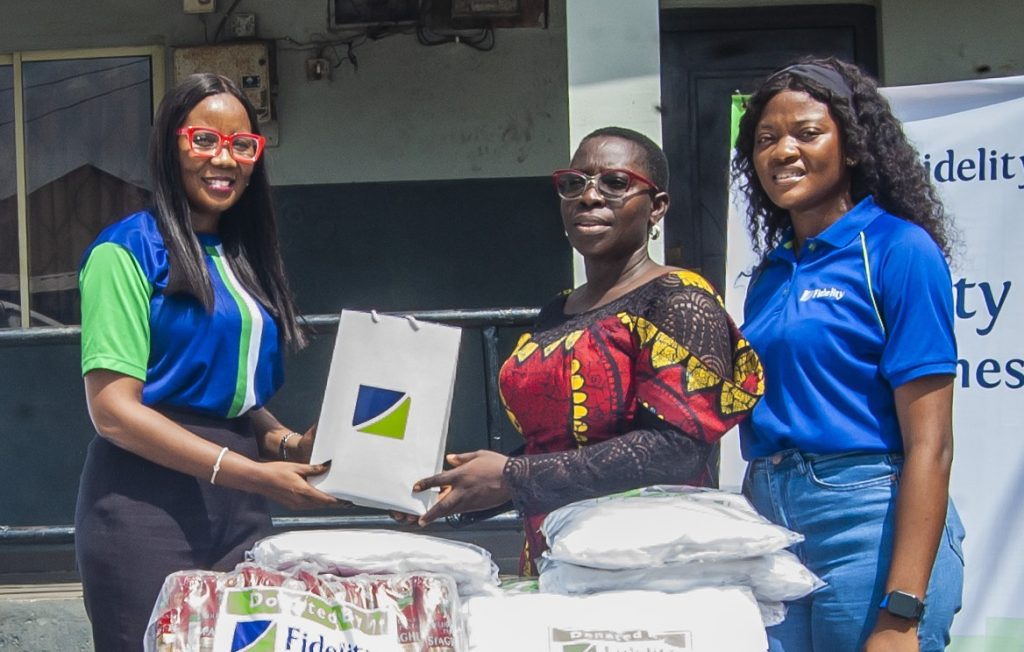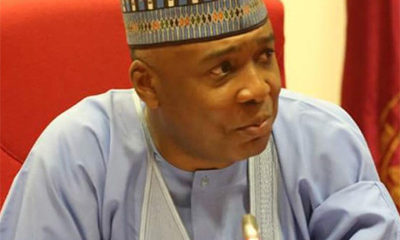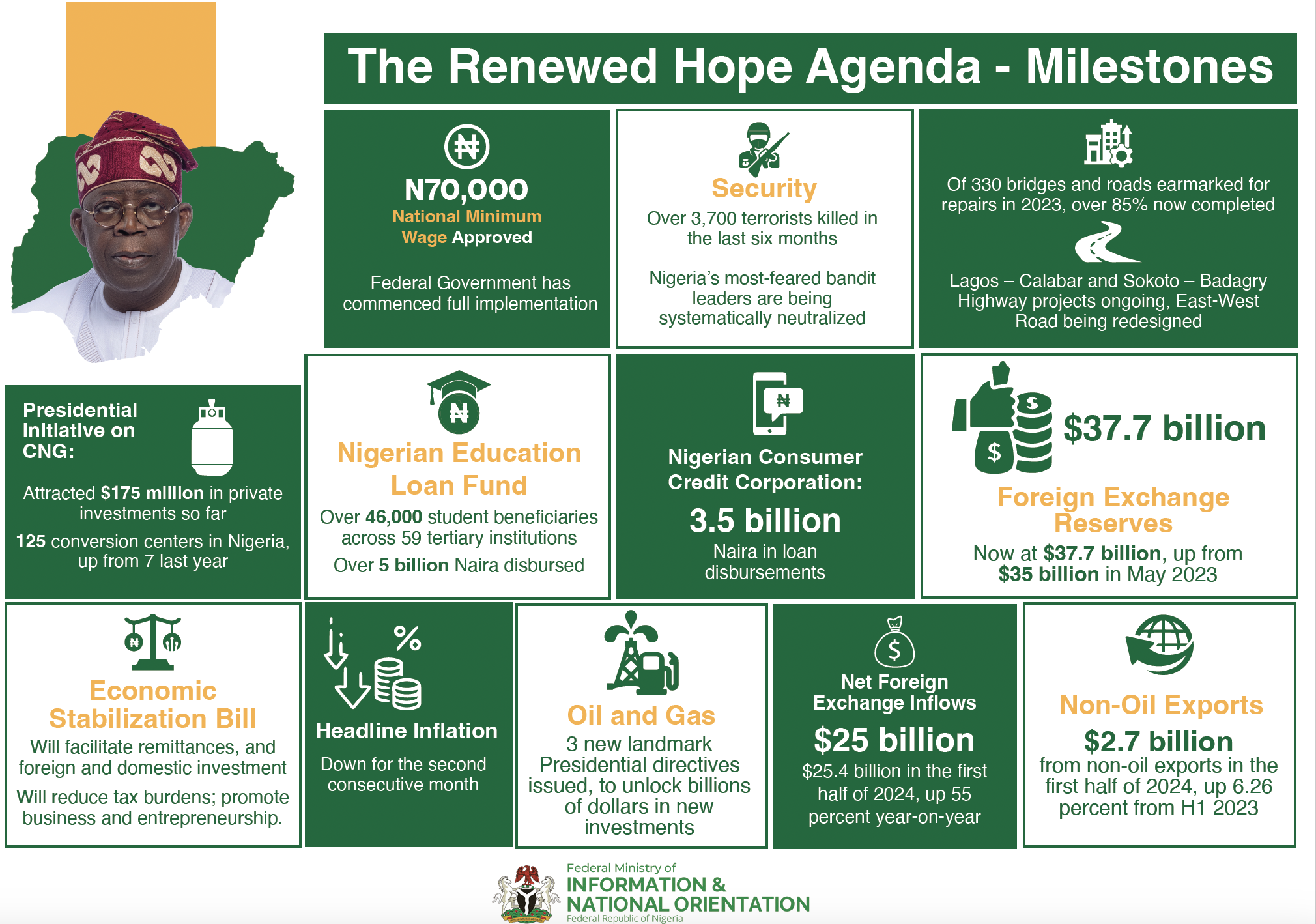Business
Fact-Checking the story: Polaris Bank loses N26bn loans granted to 6 ex-directors without collaterals
Published
1 year agoon
By Olalere Ojedokun
A report being syndicated by a section of online media with the title: Polaris Bank loses N26bn loans granted to 6 ex-directors without collaterals, made several claims in figures, interpretations and practices.
Claim 1. POLARIS Bank has lost N26.005 billion worth of loans granted to 6 ex-directors, mostly without collaterals
This claim is untrue, founded primarily on lack of understanding of accounting principles and convenient disregard of the denotative dates and notes to the accounts.
The story was based on the audited accounts and report for the year ended December 31, 2022. The report was approved on March 20, 2023. In line with the general comparative and accrual reportage format, the bank presented the status report for the preceding year ended December 31, 2021 and the reporting year ended December 31, 2022. The two comparative tables were clearly marked and were also evidently seen by the writer of the story. While the 2021 insider credit status report listed eight directors with total outstanding loans of N25.827 billion, the reporting year 2022 status report updated that four directors had fully liquidated their loans, a director had partially liquidated her loan while two directors had seen increase in outstandings against their names. The 2022 status report indicated a total of N31.646 billion insider credits related to the four remaining former directors. The 2022 report clearly indicated that Abimbola Izu, Dotun Adeniyi, Tokunbo Abiru and Theodora Onwughalu had paid their loans and as such, were not listed in 2022.
The 2022 report was clearly indicative of the changes and the compliance of the bank with the Prudential Guidelines and Banks and Other Financial Institutions Act (BOFIA). A former director, with related interest in Newcross Exploration and Production, Jason Fadeyi, whose loan of N25.442 billion in 2021 accounted for 98.5 per cent of the total outstanding insider credits in 2021, saw his total outstanding loan rising to N30.922 billion in 2022, ostensibly due to accrued interests and increase due to foreign exchange (forex) conversion rate as the loan is a foreign currency (US Dollar)-denominated loan. It’s a simple understanding that forex rate is a mediating factor in foreign currency denominated loan. The closing forex rates were generally available on the Central Bank of Nigeria (CBN)’s website. The Naira/US Dollar rate was N424.11 per US$ for the year ended December 31, 2021 and N461.1 per US$ for 2022. It was N400.33 per US$ in 2020. All these partially accounted for the year-on-year change in the loan. Meanwhile, Newcross Exploration/Fadeyi’s N30.922 billion accounted for 97.7 per cent of total outstanding insider credits in 2022.
Interestingly, as rightly reported by the story, this loan, N30.922 billion, has a perfected collateral, a debenture of the assets of the company. A further check indicated that Newcross Exploration/Fadeyi’s loan is a syndicated facility by eight banks with the FBN Trustees as the trustee managing the collateral on behalf of all the lenders. Jason Fadeyi was cited for the loan under the general principles of insiders which regard family members, relatives and associates as insiders. As rightly pointed out by the story, Corporate Affairs Commission (CAC)’s records showed that Newcross Exploration and Production was registered on July 9, 2013, with Festus Fadeyi and Bolaji Ogundare as persons with significant control of the company.
The second major insider credit in 2022 report was a N535 million loan credited to Mr. Tunde Ayeni, about 1.7 per cent of the total loans. This was classified as “performing”. Altogether, the collaterised, syndicated loan of Newcross Exploration/Fadeyi and “performing” loan of Ayeni accounted for about 99.4 per cent of total outstanding insider credits in 2022. All these were clearly stated and evident in the table which the reporter accessed, but failed due to poor interpretations and understanding of reportage format.
Claim 2: As of December 31, 2022, total outstanding loans owed by these ex-directors of Polaris Bank, some of which would not be repaid, amounted to N57.473 billion.
This claim is untrue, and flowing from the first claim, it exposed the poor understanding of the comparative reporting (going-concern) basis. To arrive at its claim of N57.473 billion, the reporter simply added the total outstanding insider credits in 2021 of N25.442 billion to total outstanding insider credits in 2022 of N31.646 billion. The reporter conveniently ignored the differential in year ending and the fact that the two tables, like other segments of the annual reports and accounts, were provided for comparative reporting. The reporter ignored the indicative narration showing that the Newcross Exploration/Fadeyi’s loan was same loan, moving from a reporting year to another reporting year. By implication, the story increased Newcross Exploration/Fadeyi’s loan to N56.364 billion, 98.1 per cent of its claimed total outstanding loans of N57.473 billion.
Further check of post-year end events, which are usually indicated in updates to accounts after year-end but prior to board’s final approval and signing off of the accounts, indicated that Demanta/Ibiye Ekong’s N89 million outstanding loan was fully paid off in February 2023. In essence, the only director-related insider loan outstanding is former Managing Director Timothy Oguntayo’s N100 million, which is a subject of reconciliation between the tripartite of employee, employer and regulator. As noted by the story, Oguntayo “who was earlier charged by the Economic and Financial Crimes Commission (EFCC) but later exonerated”, had no misconduct established against him. As noted earlier, the Newcross Exploration/Fadeyi’s loan is a syndicated facility by eight banks with the FBN Trustees as the trustee managing the collateral on behalf of all the lenders. CBN’s Prudential Guidelines states that “For syndicated facilities, the classification shall be the same across all banks involved in the syndication. Thus, the worst classification by any of the banks involved in the syndication shall apply across board”.
Claim 3: Abimbola Izu, another ex-director, got N103 million mortgage loan from Polaris Bank but did not repay it, according to bank records. Her collateral perfection status was also recorded as “not applicable.” Bank records also showed that Izu took a term loan of N17 million with another “not applicable” collateral status.
This claim is untrue. The 2022 audited report, on which the story was based, showed that Izu was not indebted to the bank, having liquidated the prior year’s status report.
Claim 4: Fadeyi borrowed another N30.922 billion term loan from the bank – which has been placed on the watchlist.
This claim is false. It emanated from the poor understanding of the comparative reporting (accrual, going concern), basis. This claim particularly undercut the credibility of the entire story, obviously showing the reporter had no training or understanding of financial reporting/journalism. This also subjects the story to motive analysis as the reporter failed to adhere to a pattern of errors, rather zigzagging across erroneous claims to arrive at unsubstantiated claims. For instance, while doubling up Fadeyi’s, the story kept Oguntayo’s N100 million loan unchanged over the comparative years, but curiously reported Ekong’s loan as N89 million (2022 year-end outstanding) and N4 million, N4 million (two loans in 2021). Whereas, the 2021 report showed that Ekong owed a total of N108 million (N100 million by Demanta, N4 million, N4million), and by 2022, these reduced to N89 million, having liquidated the two N4 million, N4 million personal loans and reducing the N100 million related loan to Demanta to N89 million. A pattern of error would have simply added Ekong’s related loans of N108 million in 2021 with N89 million in 2022 to arrive at a false premise like Fadeyi’s. The story, cherry-picking of figures, simply reported N89 million while adding the two personal loans of N4 million each for Ekong as latest reporting year status.
Claim 5: Based on Polaris Bank’s records, Ibiyi Ekong of Demanta Nigeria Limited is another ex-director who took loans from the bank without repaying them. Ekong, a former executive director of the bank who resigned in 2016, owes the bank N89 million. Ekong also owes the bank N4 million borrowed as a mortgage loan and another N4 million taken as an auto loan, which was not repaid.
This claim is untrue. As explained above, the reporter engaged in convenient cherry-picking of figures, due to poor financial journalism background and lack of fidelity, even in its erroneous claims. While its claims based on the reporting year ended December 31, 2022 were false, post-reporting events showed that Demanta, which was the only Ekong-related insider credit outstanding in 2022, had been paid by February 2023, prior to the signing and final approval of the account in March 2023. The story: Polaris Bank loses N26bn loans granted to 6 ex-directors without collaterals, was first reported by one EconomyPost in October 27, 2023 and was reposted by one International Centre for Investigative Reporting (ICIR) Nigeria on October 31, 2023. There were clearly other reporting periods that the writer could have sought updates on the post-year-end changes.
Claim 6: Theodora Amaka Onwughalu is another ex-director who borrowed N19 million mortgage loan from Polaris Bank but did not pay it back.
This claim is false. The 2022 reporting year status indicated Onwughalu was not indebted to the bank. Her total indebtedness of N19 million in 2021 had been paid by 2022.
Claim 7: Similarly, Dotun Adeniyi, an ex-director of Polaris Bank, borrowed N27 million mortgage loan from the financial institution but did not repay it.
This claim is false. The 2022 reporting year status indicated Adeniyi was not indebted to the bank. His total indebtedness of N27 million in 2021 had been paid by 2022.
Claim 8: Tokunbo Abiru, now a Lagos senator, was appointed the managing director of the then Skye Bank in 2016 but resigned in 2020 to fulfil his political ambition.
In its cherry-picking and convenient disregard for facts and figures, the story while narrating the Abiru’s relationship, ignored that the 2021 report indicated that Abiru, as an ex-director, had a related (taken by a company related under insiders’ principles) “performing” loan of N9 million in 2021 reporting year, which had been paid off by the 2022 reporting year.
Claim 9: Collateralisation of loans
The story sensationally placed “without collaterals” and ran under this theme alongside its cherry-picking of figures to portray an image of unusual, untoward or underhand transactions. Beside ignoring the fact that 98.5 per cent of the total outstanding insider-related credits in 2021 and 97.7 per cent of 2022’s report had a perfected collateral, and also 1.7 per cent of the 2022’s credit status was “performing”- altogether collateralized/performing status of 99.4 per cent in 2022; the story conveniently ignored the global banking practice, and as applicable in Nigeria as well, that secured and unsecured loans are typical in banks’ loan books. The credit risk assessment and banking rules allow banks to beyond collaterals, approve and grant loans to some extent (depending on each internal guidelines), based on subjective assessments. This is a generally available information and one of the basics in financial journalism classes. Loans, in terms of security, are generally divided into two- secured loans (with collaterals) and unsecured loans (without collaterals). The secured loans are so called because of the presence of a collateral, a physical asset that backed up the loan, which the lender has the right to take in the case of default. Unsecured loan is so called because of absence of physical asset, but in the reality of credit risk assessment and recovery, it’s secured by personal goodwill and standing, a case-by-case subjective assessment of a customer’s credit worthiness and the size of the loan. In any case, the lender has the option of recourse to court to enforce recovery of “unsecured loan”, in the event of a default.
In a February 24, 2022 report titled “Here are banks that offer loans without collateral”, Business Day (businessday.ng), a leading business and economy daily, reported increased demand for “unsecured lending” among Nigerian Deposit Money Banks (DMBs). The newspaper reported that “as seen in the latest data from the Central Bank of Nigeria (CBN), demand for unsecured lending has been on the rise but lower than the demand in the pre-COVID-19 years”. The story listed not less than eight banks that were offering “loans without collateral” to the general public, including Nigeria’s four largest banks. In recognition of its status as acceptable banking/lending practice, the BOFIA included provisions guiding unsecured lending.
Claim 10: Insiders
The story ran a villainous theme of undue characterization of insiders’ transactions in banks, either out of poor understanding or its convenient disregard of practice or both. Both BOFIA and CBN’s Prudential Guidelines make provisions for insider-related transactions, premised on the understanding that excluding significant stakeholders in a company’s business may be tantamount to undermining same company. Prudential Guidelines define insiders to include “directors, significant shareholders, employees and investee companies (such as associates, subsidiaries, joint ventures) of banks, and other entities in which they have significant control”. In line with the BOFIA, the term “director” includes director’s wife, husband, father, mother, brother, sister, son, daughter and their spouses. A significant shareholder is regarded as someone holding at least 5.0 per cent ((individually or in aggregate) of a bank’s equity.
The CBN requires that “Director, insider and significant shareholder credit exposure shall be fully disclosed by banks in their financial statements and returns prescribed by the Central Bank of Nigeria”. It also required banks to “ensure that their credit policies specifically address lending to directors as part of related parties or insiders lending policies”. In treating insiders’ loans, BOFIA states that a bank shall not lend “more than five per cent of its paid-up capital to any of its directors or significant shareholders provided that the aggregate of the bank’s exposure to all its directors and significant shareholders does not exceed 10 per cent of its paid up share capital or such percentage as the Bank (CBN) may prescribe”. Polaris Bank neither violates any principles in lending to directors nor the limits prescribed by the laws.
Claim 11: Classification of loans
The story sensationally ran the denotative classification of the loans as “lost”, implying that such classification meant that “it was not recovered by the bank” or not going to be paid back. In fact, its headline of “lost”, was casted on this wrong premise of understanding of classification of loans and the recoverable status. Classification of loans are guided by stipulated timelines by the CBN Prudential Guidelines and the terms associated with this classification are credit risk management references, not absolute ordinary meanings.
The CBN Prudential Guidelines state that a credit facility should be deemed as non-performing when interest or principal is due and unpaid for 90 days or more. The guidelines indicate that a loan can be substandard, doubtful or lost. A loan is subs-standard when unpaid principal or interest remain outstanding for more than 90 days but less than 180 days.
A loan is classified as doubtful when unpaid principal or interest remain outstanding for at least 180 days but less than 360 days.
A loan is classified as lost when unpaid principal and or interest remain outstanding for 360 days or more. The CBN Prudential Guidelines state that for a facility granted to an “insider or related party credit”, which had been fully provided for, to be written off, “the approval of CBN is required”. This provision is higher than requirement for writing off provisioned lost loans by non-insider.
Motive analysis and convenient infidelity to facts
A general review of the story subjects the reporter to “motive analysis”, especially with its convenient infidelity to facts and figures and many “patterns of errors”. Was the report a targeted blackmail working to achieve a predetermined notion of characterization, rather than a professional analysis of financial report? Was the story in pattern of poor-taste, grant-chasing reports by a section of media seeking to demonise entities to secure funding? It was clear the reporter carefully “shuffled” facts and provided no basis for far-reaching assumptions and claims. While the reporter was copiously referring to unrelated businesses and current positions of the former directors, it failed to make similar efforts to reach out to the affected directors in the spirit of fair reporting.
Ethics
The report failed the ethical test, especially in the light of the “statement of principles” of both Economy Post and ICIR. Economy Post, set up in 2023, aims to promote responsible journalism that is fair, just and free from external corporate and political influences.
The ICIR seeks to be an independent, non-profit news agency that promotes transparency and accountability through robust and objective investigative reporting. ICIR, particularly, failed to fact-check the report and its wholesale adoption of the story belied the enviable reputation of its board of trustees. Fairness, fact-checking and corrections are cardinal operating principles of ICIR reportage. ICIR commits: “We will take utmost care to be fair to all subjects in news stories.
All sides of a story must have their say. Fairness is a cardinal requirement in Journalism, more so investigative reporting. If anybody is involved in anything that appears negative or unseemly, an extra effort must be made to get his own side of the story.
If any such person declines comment, it should be so stated.
“Also, facts must be accurately presented. Facts are sacred. In dealing with sources, document, databases and the Internet, it is not enough to quote the information gotten correctly, an effort must be made to establish its accuracy. Where possible, cross check your facts again and again using different sources.
“The ICIR is committed to the principle of fairness and accuracy. Therefore, when we make a mistake, we will promptly correct it. If the correction is significant, we will explain the change and the reason for it. In addition, if there is an update to the story, we will provide clarification. And if the entire report is open to question or fails to meet our ethical standard, we will provide clarification signed by the editor”. With all these, it will be fair to expect ICIR to correct its mistake in reposting the misleading story, given numerous factual, operational and textual errors cited above. The story is below par and unseemly to the avowed ideals of ICIR.
In conclusion, the story “Polaris Bank loses N26bn loans granted to 6 ex-directors without collaterals” is erroneous and misleading, the bank has lost no money to ex-directors’ loans, as inappropriately claimed by the publication.
Ojedokun is a Lagos-based Independent Journalist/Analyst
You may like
Business
Fidelity Bank Supports Modupe Cole Memorial School, Lagos
Published
17 hours agoon
February 4, 2025Fidelity Bank Supports Modupe Cole Memorial School, Lagos
AJAGBE ADEYEMI TESLIM
SPONSORED BY: H&H
In continuation of its drive to alleviate the impact of economic hardship and suffering among indigent Nigerians, Fidelity Bank Plc recently donated food items to Modupe Cole Memorial Childcare and Treatment Home School in Akoka, Lagos.

CAPTION:
L- R. Tolulope Rojaiye, Team Member, Brand and Communications, Fidelity Bank Plc; Osho Olufunmilayo Bamidele, Vice Principal 2, Modupe Cole Memorial Childcare and Treatment Home School; and Victoria Mbonu, Class President, Intellect Nexus Inductee Class, Fidelity Bank Plc; during a Corporate Social Responsibility (CSR) donation event executed by Fidelity Bank at Modupe Cole Memorial Childcare and Treatment Home School, Akoka, Lagos recently.
The donation which aligns with the Bank’s Corporate Social Responsibility (CSR) pillars of education and health, was championed by the Intellect Nexus Class of 2024 under the Fidelity Helping Hands Program (FHHP). Through this initiative, Fidelity Bank staff identify community needs, raise funds to address them, and receive matching support from the bank to implement impactful projects.
Explaining the bank’s commitment to supporting its host communities, the Divisional Head, Brand and Communications Division, Fidelity Bank Plc, Dr. Meksley Nwagboh, noted that, “At Fidelity Bank, we recognise the symbiotic relationship we have with the communities where we operate. This informs our decision to not only provide our host communities with relevant financial services but to also impact them with developmental projects.
“We are inspired by the great work being done here at Modupe Cole Home School and our donation is a small token of appreciation for this as we aim to support the well-being of these exceptional children.”
On his part, the Vice Principal of the school, Mr. Isiaka Ajani, expressed gratitude for the bank’s consistent support noting that Fidelity Bank’s gesture is a huge encouragement to the school.
“We say thank you for the gift items that you have brought to us today, and this shows that we are not alone in the mission to provide care and education to children with special needs.
“This institution is a testament to the belief that there is ability in disability. We have children here who have passed common entrance examinations and gained admission into higher institutions despite their challenges. It is our mission to help them achieve their potential.
“The school had made effort to provide academic and vocational training programs in bead-making and hairdressing, and specialized care for residents with severe disabilities for its 476 residents, many of whom have been abandoned by their families.” He stated.
Fidelity Bank is a full-fledged customer commercial bank with over 8.3 million customers serviced across its 255 business offices in Nigeria and the United Kingdom as well as on digital banking channels.
The bank has won multiple local and international awards including the Export Finance Bank of the Year at the 2023 BusinessDay Banks and Other Financial Institutions (BAFI) Awards, the Best Payment Solution Provider Nigeria 2023 and Best SME Bank Nigeria 2022 by the Global Banking and Finance Awards; Best Bank for SMEs in Nigeria by the Euromoney Awards for Excellence 2023; and Best Domestic Private Bank in Nigeria by the Euromoney Global Private Banking Awards 2023.
Business
Access Bank to Host Pioneering Africa Trade Conference in Cape Town
Published
7 days agoon
January 29, 2025Access Bank to Host Pioneering Africa Trade Conference in Cape Town
AJAGBE ADEYEMI TESLIM
SPONSORED BY: H&H
Access Bank PLC is set to host its first-ever Africa Trade Conference (ATC), a landmark event focused on advancing Africa’s economic transformation under the theme, ‘Empowering Africa Through Trade, Innovation, and Sustainable Growth’. Scheduled for March 12, 2025, in Cape Town, South Africa, the conference is poised to bring together the most influential voices in trade, finance, and policy to address the future of commerce across the continent.

With Africa’s trade finance gap estimated at $81 billion annually, the conference aims to tackle the systemic challenges hindering trade, particularly for SMEs and domestic firms. By fostering collaboration among key stakeholders, the Conference will explore innovative solutions, sustainable trade practices, and strategies for expanding African economies into global value chains.
Roosevelt Ogbonna, Group Managing Director/Chief Executive Officer, Access Bank PLC, emphasised the importance of the Africa Trade Conference, in addressing these pressing issues. “The Africa Trade Conference represents a crucial step in redefining Africa’s trade potential. By creating platforms for dialogue, innovation, and actionable solutions, Access Bank is enabling African businesses to connect and thrive in the global economy.”
Access Bank’s presence across 24 countries globally, including 16 in Africa, provides a unique advantage in facilitating inter- and intra-African trade. The Bank’s growing network positions it as a key player in addressing trade complexities and promoting inclusive growth across the continent.
Seyi Kumapayi, Executive Director, African Subsidiaries, Access Bank, highlighted the broader vision of the forum, saying, “The Africa Trade Conference is a platform to not only address Africa’s trade challenges, but to champion the continent’s opportunities. Through strategic partnerships, tailored financial solutions, built on the ethos of sustainability, we are paving the way for Africa’s businesses to take their place on the global stage.”
This flagship event will convene a distinguished line-up of seasoned speakers, and top executives from leading international banks, Development Finance Institutions (DFIs), and captains of industry in Africa.
The ATC will also shine a spotlight on the transformative potential of the Africa Continental Free Trade Area (AfCFTA), which aims to reduce trade barriers, enhance infrastructure, and integrate African economies into global trade networks.
Furthermore, the event will explore critical themes shaping the continent’s economic future, including the transformative role of digitisation and innovation in global trade, solutions for overcoming trade barriers to enhance market access, as well as sustainable trade practices and innovative financing models, thereby providing a comprehensive roadmap for advancing Africa’s position in global commerce. Please visit https://africatradeconference.accessbankplc.com/ for more information.
Business
Union Bank Rewards 360 Customers with N21 Million in First Save and Win Palli Promo 4 Draw
Published
7 days agoon
January 29, 2025Union Bank Rewards 360 Customers with N21 Million in First Save and Win Palli Promo 4 Draw
AJAGBE ADEYEMI TESLIM
SPONSORED BY: H&H
Union Bank, Nigeria’s leading financial institution, has kicked off its Save and Win Palli Promo 4campaign on a high note following the announcement of its first set of winners in its inaugural monthly draws.

The first live draw of this season, which took place at the Bank’s Head Office in Marina, Lagos, rewarded 60 customers with ₦100,000 each. Additionally, 300 other winners went home with ₦50,000 worth of gift vouchers during the inaugural live draw, which was conducted transparently and digitally under the supervision of relevant regulatory bodies. The winners cut across the nation.
Speaking at the first monthly draw, Gloria Omereonye, Union Bank’s Area Business Executive for Lagos Island 1, stated, “Union Bank is always dedicated to rewarding customers for their loyalty and financial discipline.
We are pleased that our promo has continued to achieve its noble goals of providing succour to our customers through our gifts and rewards, especially in these economically trying times, while facilitating a sustainable savings culture for future goals and objectives.”
Save & Win Palli Promo is a nationwide campaign designed to reward both new and existing customers with cash prizes. Season 4, which began in December 2024 and runs until May 2025, offers customers the opportunity to win ₦131 million in cash prizes, Motorcycles, Tricycles, Fuel Vouchers, and a star prize of ₦5 million, which will be handed out to three lucky winners at the grand finale.
Open to new and existing customers, the Save and Win Palli Promo requires participants to save a minimum of ₦10,000 and perform a minimum of five transactions monthly to qualify for draws. Monthly winners can receive ₦100,000, while quarterly draws will reward lucky savers with Motorcycles, Tricycles, and other exciting prizes.
Customers who save in multiples of ₦10,000 will increase their chances of winning.
New customers can join the promo by downloading the UnionMobile app to open an account or visiting any Union Bank branch.
Existing customers can reactivate accounts by calling the 24-hour Contact Centre at 07007007000 or visiting a branch.
Trending
-

 News6 years ago
News6 years agoBreaking: ‘Penalty’ Crooner Small Doctor Caught in Possession of Fire Arms
-

 News6 years ago
News6 years agoPDP Set To Cause Panic Days To Polls: FG
-

 News6 years ago
News6 years agoINEC Engages EFCC, FIU In Tracking Campaign Funding
-

 News6 years ago
News6 years agoTiffany Trump Is Dating a Millionaire Michael Boulos From Nigeria
-

 Politics6 years ago
Politics6 years agoPDP Alleges Plot by APC, Presidency to Detain Its Leaders
-

 Politics6 years ago
Politics6 years agoOsinbajo Has Betrayed Yorubas, Says Afenifere
-

 Politics6 years ago
Politics6 years agoMuslim-Muslim Ticket: I Am Proud Of My Role In Stopping Tinubu – Saraki
-
News3 years ago
INEC Publish Final List of Candidates For 2022 Osun Governorship Poll






